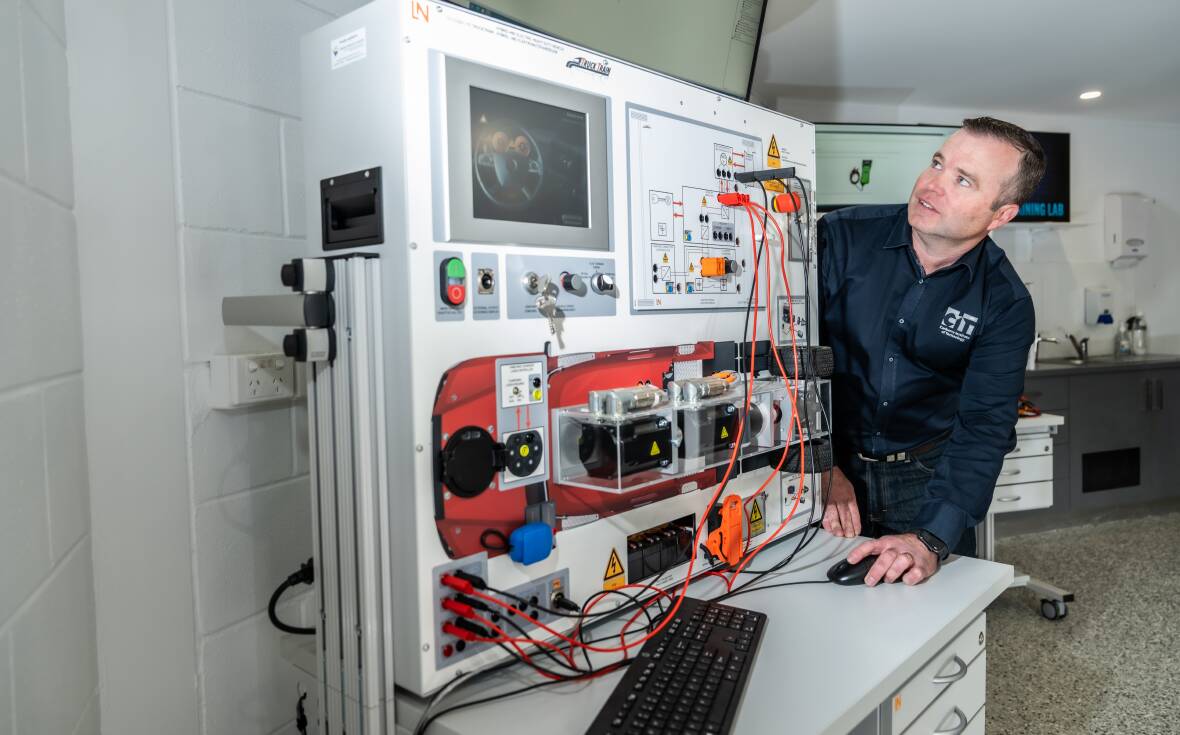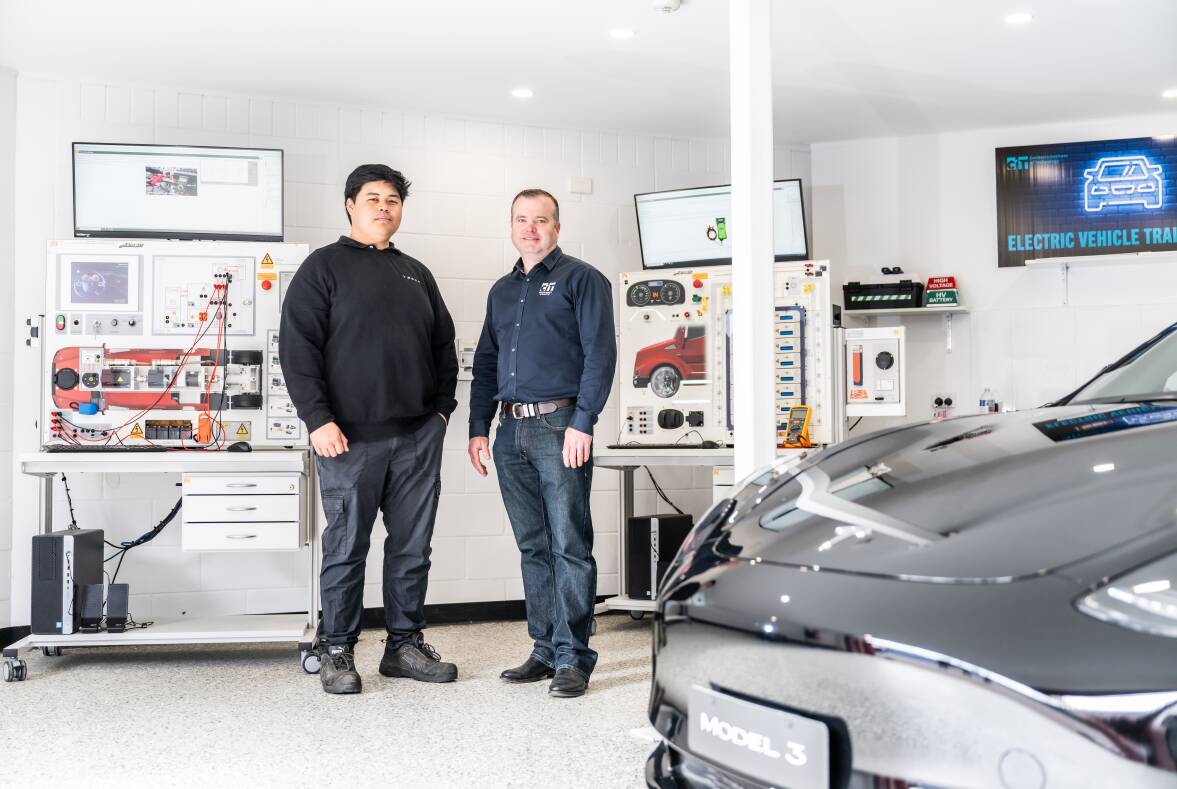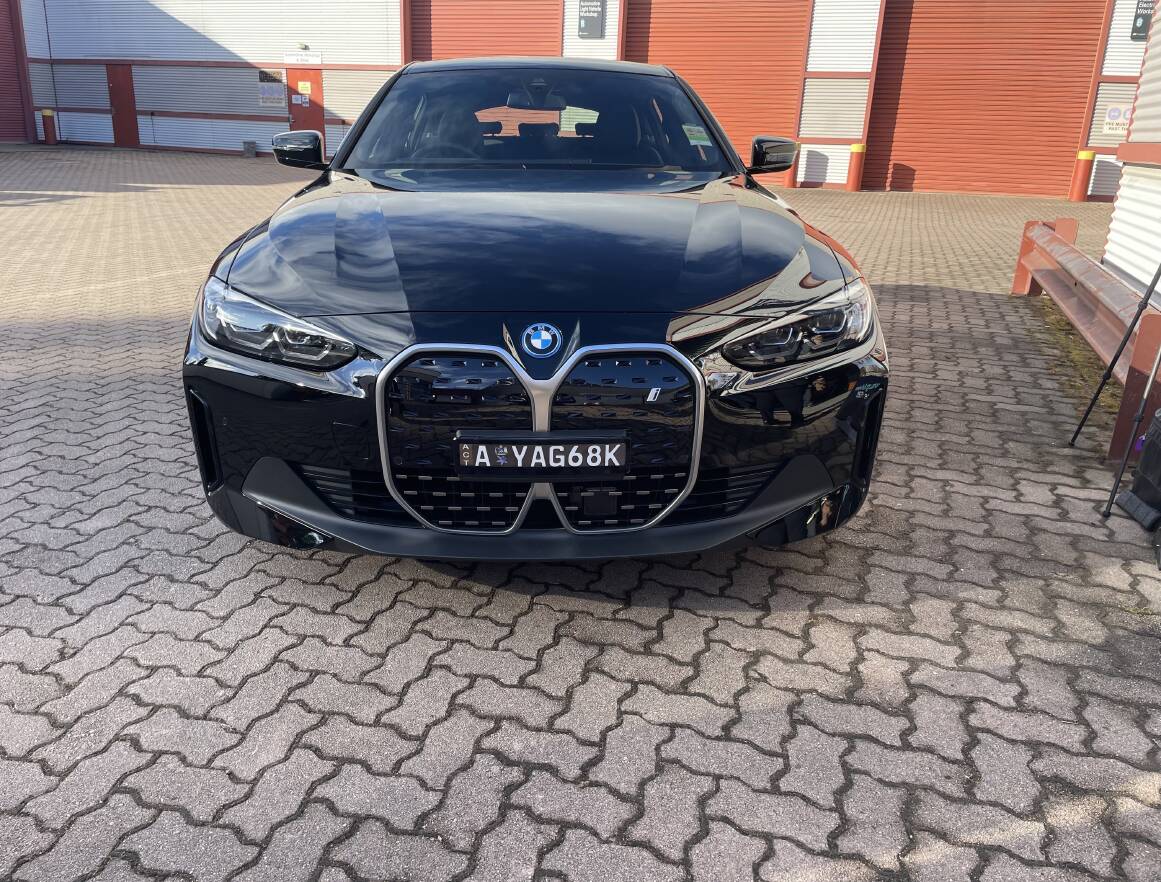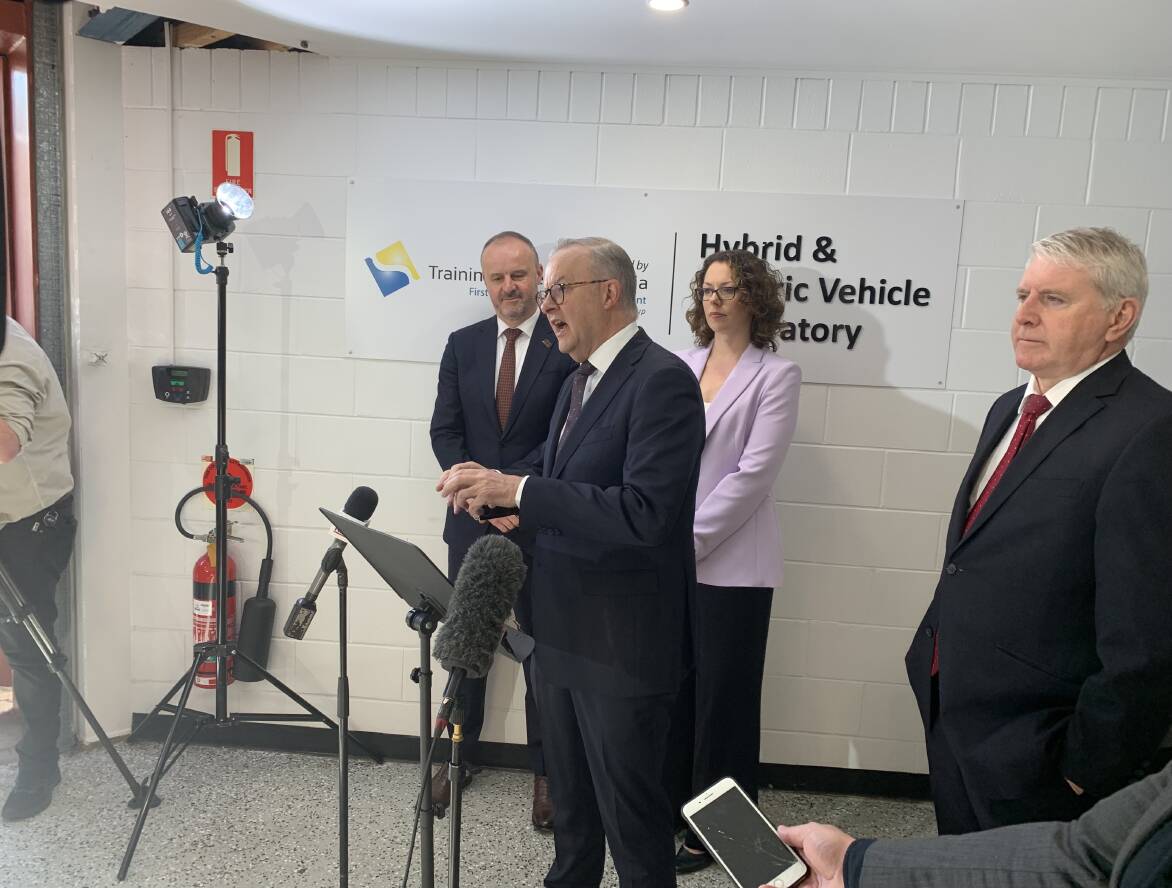By December, Canberra will have the country's first graduates in the newly minted certificate III course in electric vehicles.
It will be a proud moment for Richard Lindsay, who last year won the national teacher-trainer award in vocational training and has been a fierce advocate of preparing Canberra's apprentice-technicians for the fast-emerging electrification of the vehicle industry.
Around 40 apprentices from around the region are now enrolled in the Canberra Institute of Technology's certificate III for EVs as major global car companies like Volvo and Volkswagen commit to building only electric cars after 2035.

CIT has invested heavily in new EV simulator technology to safely train technicians given car companies like Porsche use 800-volt architecture, and 400-volt architecture is certain to be the industry standard within a few years to permit ultra-fast electric car charging.
"The certificate III in electric vehicles is a three-year training course with an additional year on the tools," Mr Lindsay said.
"There is a significant interest because not just the car industry, but the commercial side too with heavy trucks and buses, is transitioning so quickly.

"We started our EV training program [at CIT] three years ago. It's important to stay ahead of the curve on this because we need to have people with the skills to diagnose faults and work on electric vehicles as more and more of these cars arrive on our roads."
First-year apprentice Darnell Harder, 25, from Queanbeyan, is in the rare position of being part of that transition with EV-only company Tesla.
Teslas are Canberra's biggest-selling vehicles this year, and the ACT is currently the largest per capita market for electric cars in Australia.
"I've always had an interest in IT, building computers and hardware, and this opportunity to work on Tesla cars, which are really amazing products, is a fantastic opportunity," he said.

As the electric car transition ramps up across the country, one of the big changes for those who work on them is there's no more grease under the fingernails.
EVs are big batteries on wheels, managed by sophisticated software. Performance and feature upgrades arrive via wi-fi updates, often when the owners are tucked up in bed.
Mechanical workshops will still be a fixture of the automotive landscape for decades to come but an increasing number of mechanics who were trained on combustion technology are also coming to CIT to upskill with an EV technical course.
CIT has four German-built simulators to allow students to diagnose EV faults safely. One type of simulator replicates an EV drive system, another the battery set-up.
"With electric vehicles, safety is the key thing," Mr Lindsay said.

"We needed to provide a learning environment where EV faults can be diagnosed safely, without that exposure to high voltage."
ACT Chief Minister Andrew Barr is hugely supportive of CIT's EV training initiative, as is Prime Minister Anthony Albanese, who visited the CIT EV workshop on Tuesday morning to announce a $2.4 billion in flexible funding to support state and territory skills sectors to deliver skills for critical and emerging industries.
Separately, Mr Barr announced over $24 million would match Commonwealth funding for Technical and Further Education (TAFE) "centres of excellence", supporting the territory's transition to a net zero economy.
We've made it a whole lot easier for you to have your say. Our new comment platform requires only one log-in to access articles and to join the discussion on The Canberra Times website. Find out how to register so you can enjoy civil, friendly and engaging discussions. See our moderation policy here.







